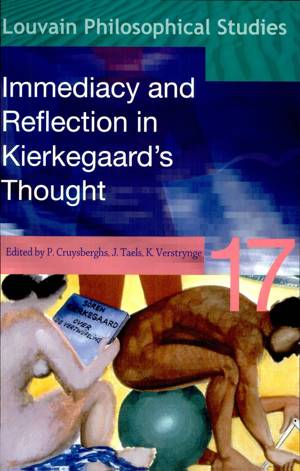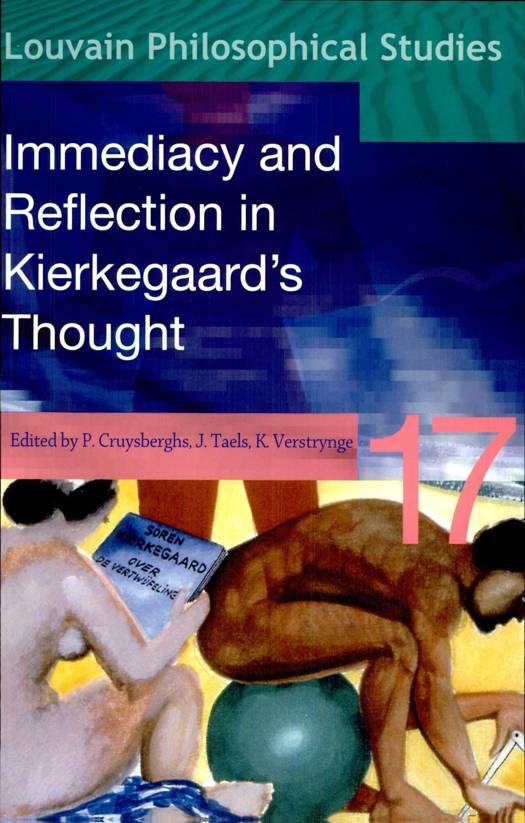
- Retrait gratuit dans votre magasin Club
- 7.000.000 titres dans notre catalogue
- Payer en toute sécurité
- Toujours un magasin près de chez vous
- Retrait gratuit dans votre magasin Club
- 7.000.0000 titres dans notre catalogue
- Payer en toute sécurité
- Toujours un magasin près de chez vous
Description
"We live in a reflective age." That is Soren Kierkegaard's overall conclusion when evaluating the time he lives in. But his appraisal contains both approval and criticism. On the one hand reflection is a necessary category to deal with the dynamics and the qualities of the modern age, on the other hand it bears a great danger. It is Kierkegaard's firm conviction that reflection should always relate to a kind of immediacy that safeguards it from becoming hollow and detached from our existential reality. Throughout the voluminous and complex work of Kierkegaard, the notions of 'immediacy' and 'reflection' play a crucial role. They appear in such an early work as From the Papers of One Still Living as well as in the late Anti-Climacus writings, and indeed their significance or influence can be felt in all philosophical texts published in between. That is not to say that the meaning of the notions is unequivocal. After all, Kierkegaard not only uses the terms in very divergent contexts, but his own understanding of them appears to evolve quite strongly in the course of his oeuvre. Moreover, in spite of their clearly philosophical character, the two notions play an unmistakable role in Kierkegaard's understanding of religion. They appear frequently in the religious discourses indeed. In short, Kierkegaard's use of the notions of 'immediacy' and 'reflection' covers a broad array of meanings and interpretations. The dialectics of immediacy and reflection, of reflection killing immediacy and raising the question of the possibility of a new immediacy is the main theme of Immediacy and Reflection in Kierkegaard's Thought. The book contains contributions authored by a number of well known Kierkegaard scholars. Kierkegaard's theory of the 'existence spheres of life' provides a first viewpoint on the interplay of immediacy and reflection. Here the philosophical and pseudonymous writings are the main subject of research. If on the other hand one pays a closer look at the significance of a 'second immediacy' for a religious attitude to life, The religious discourses come into play when the possibility of a 'second immediacy' is taken into consideration. In conclusion the theme of immediacy and reflection is connected to some important trends in the modern and contemporary era. On the one hand it is linked to the philosophical influences Kierkegaard underwent (e.g. from Hegel); on the other hand Kierkegaard is confronted with later thinkers (Heidegger in particular).
Spécifications
Parties prenantes
- Auteur(s) :
- Editeur:
Contenu
- Nombre de pages :
- 208
- Langue:
- Anglais
- Collection :
- Tome:
- n° 17
Caractéristiques
- EAN:
- 9789058673114
- Date de parution :
- 15-02-08
- Format:
- Livre broché
- Format numérique:
- Trade paperback (VS)
- Dimensions :
- 157 mm x 239 mm
- Poids :
- 385 g

Les avis
Nous publions uniquement les avis qui respectent les conditions requises. Consultez nos conditions pour les avis.






